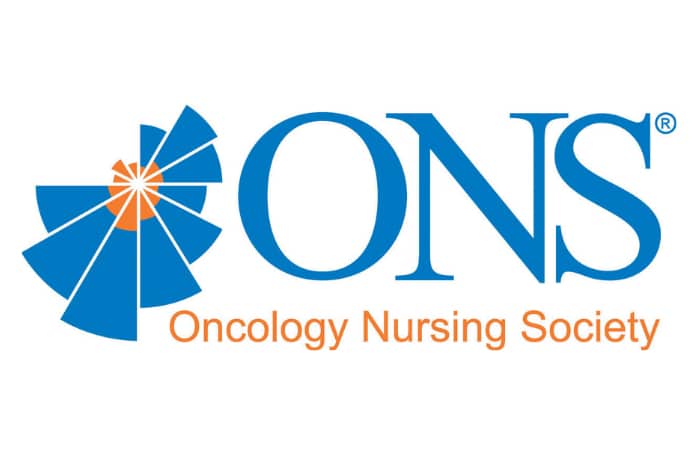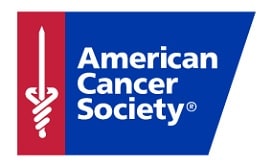What is anxiety? What may contribute to anxiety?
What is anxiety?
Anxiety is a common symptom among people with cancer.1Smith AB, Rutherford C et al. A systematic review of quantitative observational studies investigating psychological distress in testicular cancer survivors. Psycho-oncology. 2017 Nov 23; Jacobsen PB, Jim HS. Psychosocial interventions for anxiety and depression in adult cancer patients: achievements and challenges. CA A Cancer Journal for Clinicians. 2008 Jul-Aug;58(4):214-30. According to Cancer.Net, anxiety may be described as feeling nervous, “on edge,” or worried. A normal emotion, it alerts your body to respond to a threat.2Cancer.Net. Anxiety. American Society of Clinical Oncology. April 2016. Viewed March 16, 2022.
Intense and prolonged anxiety may interfere with your daily activities and relationships. Anxiety may make coping with cancer treatment difficult and may interfere with your ability to make skillful choices about your care. Identifying and managing anxiety are important parts of your cancer treatment.3Cancer.Net. Anxiety. American Society of Clinical Oncology. April 2016. Viewed March 16, 2022.
What are the symptoms of anxiety?
Anxiety can cause or show up as any of these symptoms.4Julson E. Signs and Symptoms of Anxiety Disorders. Healthline. August 26, 2021. Viewed March 16, 2022; Raypole C. Physical Symptoms of Anxiety: How Does It Feel? Healthline. March 15, 2019. Viewed March 16, 2022.
Mental/emotional symptoms
- Excessive worrying
- Agitation
- Restlessness
- Difficulty concentrating
- Irritability
- Difficulty falling or staying asleep
- Panic attacks
- Avoiding social situations
- Irrational fears
Physical symptoms
- Muscle tension or pain
- Stomach pain, nausea, or digestive trouble
- Headache
- Weakness or fatigue
- Rapid breathing or shortness of breath
- Pounding heart or increased heart rate
- Sweating
- Trembling or shaking
What may contribute to anxiety?
If you are living with cancer, fears and worries related to cancer, treatments, recurrence, and their impacts on you and your family may trigger anxiety.5Cancer.Net. Anxiety. American Society of Clinical Oncology. April 2016. Viewed March 16, 2022; Hendriksen E, Williams E et al. Worried together: a qualitative study of shared anxiety in patients with metastatic non-small cell lung cancer and their family caregivers. Supportive Care in Cancer. 2015 Apr;23(4):1035-41; Meissner VH, Olze L et al. Fear of cancer recurrence and disease progression in long-term prostate cancer survivors after radical prostatectomy: a longitudinal study. Cancer. 2021 Nov 15;127(22):4287-4295; Tsao PA, Ross RD, Bohnert ASB, Mukherjee B, Caram MEV. Depression, anxiety, and patterns of mental health care among men with prostate cancer receiving androgen deprivation therapy. Oncologist. 2022 Apr 5;27(4):314-322.
Medical and emotional conditions
Pain may worsen anxiety.6Tarrasch J, England P, Hurst VT, McDonald D, O’Keefe R, Cipriano C. Patients with metastatic disease are at highest risk for anxiety and depression in an orthopedic oncology patient population. JCO Oncology Practice. 2022 Jun 1:OP2100905; Charalambous A, Giannakopoulou M, Bozas E, Paikousis L. Parallel and serial mediation analysis between pain, anxiety, depression, fatigue and nausea, vomiting and retching within a randomised controlled trial in patients with breast and prostate cancer. BMJ Open. 2019 Jan 24;9(1):e026809. Alleviating either anxiety or pain to interrupt the feedback loop between them may provide relief of both symptoms. See Pain ›
A prolonged stress response can also cause anxiety. See Managing Stress ›
Obesity7Gariepy G, Nitka D, Schmitz N. The association between obesity and anxiety disorders in the population: a systematic review and meta-analysis. International Journal of Obesity (London). 2010 Mar;34(3):407-19; Amiri S, Behnezhad S. Obesity and anxiety symptoms: a systematic review and meta-analysis. Neuropsychiatrie. 2019 Jun;33(2):72-89. English. and alcohol are each linked to increased risk of anxiety.8Mosel S. Anxiety and alcohol: does drinking cause anxiety & panic attacks? American Addiction Centers. July 26, 2021. Viewed August 24, 2021. With both obesity and alcohol use, the link with anxiety could work in several ways. Obesity or alcohol use may increase risk of anxiety, but anxiety may also increase risk of obesity or alcohol use. Researchers suspect that causation works in both directions. This may mean that reducing either anxiety or obesity may lead to less of the other, and the same may be true for anxiety and alcohol use. See Body Weight › and Healthy Lifestyle ›
Poor functional status9Chen ML, Chang HK, Yeh CH. Anxiety and depression in Taiwanese cancer patients with and without pain. Journal of Advanced Nursing. 2000 Oct;32(4):944-51. and catastrophizing10Fischer DJ, Villines D, Kim YO, Epstein JB, Wilkie DJ. Anxiety, depression, and pain: differences by primary cancer. Supportive Care in Cancer. 2010 Jul;18(7):801-10. are each linked to higher anxiety.
Medications and therapies
Some medications used during cancer treatment or for other conditions may trigger anxiety. Check the inserts with any prescription medications you use or ask your pharmacist if you have concerns. Some therapies that may trigger anxiety:
- Anxiety is listed as a rare side effect of nonsteroidal anti-inflammatory drugs (NSAIDs) ›
- Therapies known to increase anxiety include stimulants such as ephedra, ginseng, and bitter orange.11Block KI. Life over Cancer: The Block Center Program for Integrative Cancer Treatment. New York: Bantam Dell. 2009.
Diet
Some foods are linked to risk of anxiety:
- Higher scores or risk of anxiety among people eating a pro-inflammatory diet high in commercially baked goods, fried foods and fatty meats, and low in fruits and vegetables (good evidence)significant effects in one large or several mid-sized and well-designed clinical studies (randomized controlled trials (RCTs) with an appropriate placebo or other strong comparison control or observational studies that control for confounds) (this is the CancerChoices definition; other researchers and studies may define this differently)
- Higher reported anxiety symptoms among people with higher caffeine use (modest evidence)significant effects in at least three small but well-designed randomized controlled trials (RCTs), or one or more well-designed, mid-sized clinical studies of reasonably good quality (RCTs or observational studies), or several small studies aggregated into a meta-analysis (this is the CancerChoices definition; other researchers and studies may define this differently)
See Eating Well ›
Noise
Exposure to traffic noise is also linked to an increased risk for anxiety (preliminary evidence)significant effects in small or poorly designed clinical studies OR conflicting results in adequate studies but a preponderance of evidence of an effect (this is the CancerChoices definition; other researchers and studies may define this differently). See Creating a Healing Environment ›
Risk factors for anxiety
You are more likely to experience anxiety if you have these risk factors:12Cancer.Net. Anxiety. American Society of Clinical Oncology. April 2016. Viewed March 16, 2022; Okuyama M, Takaishi O et al. Associations among gastroesophageal reflux disease, psychological stress, and sleep disturbances in Japanese adults. Scandinavian Journal of Gastroenterology. 2017 Jan;52(1):44-49.
- Previous diagnosis or family history of anxiety or depression
- Lack of support from friends and family
- Financial burdens
- Gastroesophageal reflux disease (GERD)
Personal story
Elizabeth Louise O’Riordan
Anxiety, depression and PTSD can set in months or even years later when the reality of what you’ve been through, what you look like and what might happen in the future starts to sink in. How do you deal with the grief of infertility, altered body image, scars, pain, premature menopause or the financial difficulties and trying to go back to work? None of it is easy. And most of this collateral damage is hidden to the outside world. Everyone tells you that you look great—if only they knew.
It is these months and years after treatment when patients need the most support.
Read Elizabeth’s full post on our blog.
Helpful links
Learn more
References


